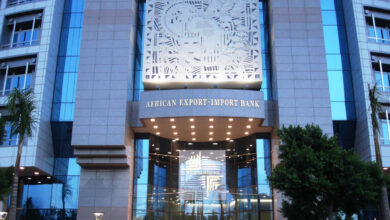GUTA urges sustained efforts to stabilise cedi as new govt takes office

As Ghana prepares to usher in a new government on January 7, 2025, the President of the Ghana Union of Traders Association (GUTA), Dr. Joseph Obeng, has emphasized the critical importance of stabilising the local currency to foster a robust business environment. Reflecting on 2024’s economic hurdles and achievements, Dr. Obeng called for policy continuity and strategic measures to consolidate recent economic gains.
Currency fluctuations and their impact on businesses
The Ghanaian cedi’s volatile performance in 2024 left businesses grappling with rising costs and shrinking profit margins. According to the Bank of Ghana, the cedi depreciated by approximately 19.35% against the US dollar, 19.19% against the British pound, and 15.24% against the euro by mid-December. This depreciation significantly increased the cost of imports, heightened inflationary pressures, and forced businesses to adjust pricing strategies.
“Currency volatility is a major disruptor for traders. It affects pricing, inflation, and borrowing costs – all of which are fundamental to business sustainability,” Dr. Obeng explained during an interview with this portal.
However, stabilization measures introduced in the latter part of the year provided some relief. The Bank of Ghana implemented foreign exchange interventions and tightened monetary policy to control inflation and restore some confidence in the local currency. These efforts contributed to a modest improvement in the cedi’s performance, providing a glimmer of hope for traders.
Understanding Ghana’s exchange rate challenges
Ghana operates a managed floating exchange rate regime, where the cedi’s value is determined by market forces but occasionally influenced by central bank interventions to curb excessive volatility. While this approach provides flexibility, it also exposes the currency to external shocks, including fluctuating global commodity prices and capital outflows.
In 2024, Ghana’s reliance on imports for essential goods and services exacerbated pressure on the cedi. Global crude oil price volatility, coupled with high demand for foreign exchange, strained the country’s reserves. Dr. Obeng stressed the need for policies to strengthen the local currency by promoting export diversification and enhancing domestic production to reduce dependency on imports.
Stabilizing the private sector
Dr. Obeng highlighted the interplay between inflation, interest rates, and currency stability as critical factors for private sector growth. He praised the government and central bank for reducing inflation from over 54% in January to approximately 20.4% by November 2024. This significant progress, he noted, has created a more predictable economic environment for businesses.
However, he cautioned against policy inconsistencies that could derail these achievements. “The private sector is the engine of growth, and for it to thrive, we need stable policies that can withstand external shocks. Gains made today must be sustained through long-term strategies,” he advised.
Outlook for 2025
The business community is optimistic that improved fiscal and monetary policies will create a more stable macroeconomic environment in 2025. With the government’s commitment to reducing debt under an IMF-supported program and bolstering local production, traders see an opportunity for sustained growth.
Dr. Obeng expressed GUTA’s readiness to work closely with the new administration, advocating for policies that address the unique challenges faced by traders and the wider business community. “Collaboration between government and the private sector is key. Together, we can unlock Ghana’s economic potential and create opportunities for all stakeholders,” he remarked.
Broader implications for trade and industry
Dr. Obeng’s remarks underscore the broader challenges and opportunities facing Ghana’s trade and industry sectors. External risks, such as rising global interest rates, geopolitical tensions, and supply chain disruptions, remain concerns. Nonetheless, the stabilization of the cedi in late 2024 offers a platform for rebuilding business confidence and expanding operations.
For Ghana’s traders, 2025 represents a chance to leverage these improvements and contribute meaningfully to the nation’s economic recovery. “Sustainability in economic policies ensures that the benefits trickle down to all stakeholders, creating an environment conducive to trade and industry growth,” Dr. Obeng concluded.
As Ghana embarks on this new chapter, the call for consistent and sustainable economic policies will likely shape the narrative of its business environment. The year ahead presents a critical test for policymakers and the private sector to collaborate in creating a resilient and thriving economy.




